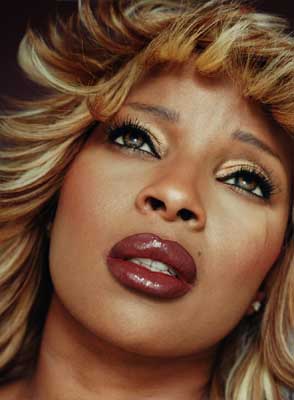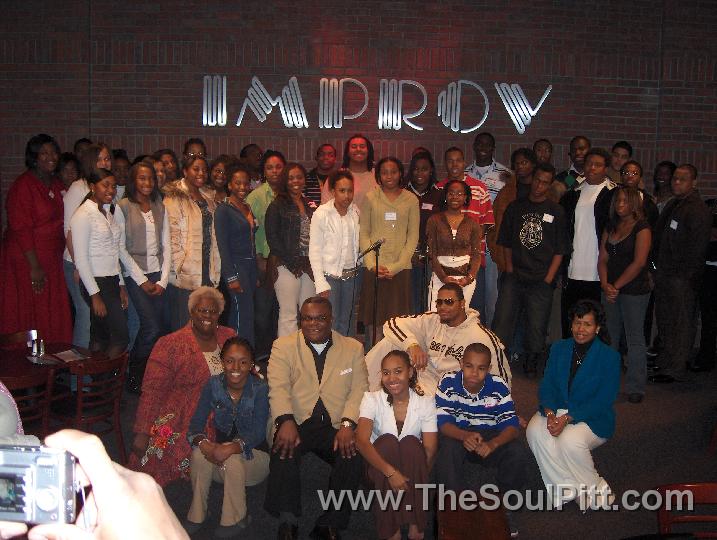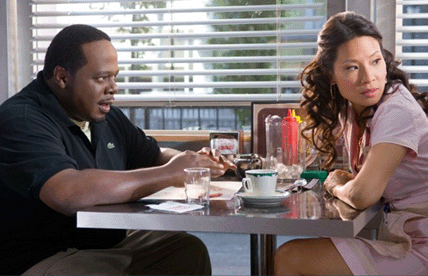 Alicia Keys: The Smokin’ Aces Interview
Alicia Keys: The Smokin’ Aces Interviewwith Kam Williams
Alicia Augello-Cook was born in New York City on January 25, 1980 to a Jamaican father (who bounced while she was still a toddler) and a mother who’s a mix of Puerto Rican, Italian and Irish. An only child, little “Lellow” was raised in Hell’s Kitchen by her doting mom who recognized she had a prodigy on her hands soon after her young daughter started taking piano lessons.
Alicia would attend the prestigious Professional Performance Arts School of Manhattan, where she studied both jazz and classical composition, crediting influences ranging from Nina Simone to Stevie Wonder to Oscar Peterson to Frederic Chopin to Tupac Shakur. After graduating as valedictorian of her class, she entered Columbia University at just 16, but soon took a leave to pursue her professional career.
Writing songs which reflected both her roots and her eclectic musical education, Alicia changed her last name to Keys and signed with Clive Davis’ J Records which released the five-time Grammy-winning Songs in A Minor in 2001. Skyrocketing to superstardom, she’s since collected four more Grammys, plus eleven Billboard Awards, three American Music Awards, two MTV Video Awards, three NAACP Image Awards, six Soul Train Awards, a VH1 Award and a People’s Choice Award.
She has also been named one of People Magazine’s 50 Most Beautiful People (2002) and one of FHM Magazine’s 100 Sexiest Women in the World (2005 and 2006). This multi-talented Renaissance Woman even wrote a best-selling book, Tears for Water.
Those who think that Alicia is only making her acting debut now must have missed her appearance at four on the Cosby Show where she exhibited precocious stage presence as Maria, a friend of Rudy Huxtable. Here, she shares her thoughts on her role as Georgia Sykes, a seductive yet ruthless assassin, in Smokin’ Aces, a high-octane, ensemble flick co-starring Ben Affleck, Ray Liotta, Jeremy Piven, Andy Garcia and Common.
KW: What interested you in this script?
AK: The more that I read it, the more intrigued I became with it... the more it drew me in.. the more I realized how each character had its own life… and the way that every story combined into the next story… and the way that everything you thought it was, it was not. So, by the time I got to the end of the script, I was just enamored with it. I couldn’t believe it. I could see every shot… I could see every vision… and I could see how it would all come together. I just felt like it was so perfect, and for me, personally, so unexpected, that I knew it was perfect.
KW: Why was playing Georgia perfect for you?
AK: It was truly something that, the minute that I read the script, I knew that it was so out of my element, so out of my normal character, so out of what so many people probably expect of me that I knew it was the right thing for me to do. I wanted to break away totally from anyone’s expectations. I wanted to do what was totally unexpected. I wanted to dive into myself in a way that I have never ever done before. And to be surrounded by such incredible actors was truly inspiring. The entire cast and Joe [director Joe Carnahan) was so motivating. I think that I’m totally spoiled, because anything I do following this will probably not compare.
KW: So, your fans get to see a new side of you in this film.
AK: It’s not me, it’s Georgia. So, I don’t have to worry about that. Maybe you can say it’s a totally different side of what anybody might expect of me which is maybe why I did it. There’s a lot going on with me in this movie.
KW: Did acting against type come easily to you?
AK: Well, I don’t think anything that’s worth it exactly comes easy, but to work for that was completely worth it. And I knew that with everything that I do I want to give up my comfort zone. I don’t want to stay in the same place. I know myself. I like to get out of that area and challenge myself, and I find that the best comes from that.
KW: How did you feel about your character’s wardrobe?
AK: The wardrobe is crazy because we know that Buddy [Jeremy Piven’s character] has a serious, serious addiction to prostitutes. That’s the deal. So, to get inside, where I can get close enough to do what I need to do, I’m going to have to fit in with the prostitutes. So, the whole situation is, yeah, my first Halloween as a prostitute. [Laughs]
KW: How did you feel about the use of the N-word in the picture?
AK: I consciously didn’t use the word. I substituted “mother-[bleep]” or “[bleep]-head” or “piece of [bleep].” There are plenty of other words. I consciously didn’t want to use that word, though separating myself from who I am and totally becoming Georgia Sykes, since Georgia’s a killer, she definitely doesn’t give a damn about what she’s gonna’ call you. That was a reality that I had to understand and be ready to dive totally into her. And I wanted to do that.
KW: This being your first feature film, did you get help from any of your co stars?
AK: Taraji [Henson] and I hit it off immediately. She’s a wonderful lady, an incredible actress. Joe actually brought us together very early on, before we even thought about filming scene one. We hung out and went to the movies because we definitely wanted the relationship to be really authentic, and it was. You find that you naturally connect with people or you don’t. And she’s one of the people that you connect with. I did learn a lot from watching her and from listening to her. We developed our characters’ back stories together… We spoke about where we came from, where we were going, and why. We spoke about a lot of things like that, so she definitely was a great inspiration for me.
KW: How would you describe that back story of your characters’ relationship that the two of you developed?
AK: I think that Georgia and Sharice (Taraji’s character) are close, and have obviously been through a lot of very heavy situations together which would normally bring you into a place that you probably wouldn’t experience with someone who is just more surface. In our back story, we definitely knew each other for years. I was uprooted from where I grew up, originally, and came to live near her. So, she kind of showed me a lot from the beginning. She was the older sister that I never had, somebody who could help care for me and show me the ropes, that kind of thing. I think that as Georgia I might have been aware that there might have been something a little out of place, feelings developing on her side towards me. But I didn’t pay it any attention because we’re busy doing other things. Plus, not wanting to make it a big deal, because I love her as a sister. We have a deep relationship anyway, so what’s the big deal? So, when you come into the movie you actually witness, just as I’m witnessing it, that it’s becoming a little more uncomfortable. She’s becoming a little more crass about it all, and I’m starting to wonder what’s really going on. In fact, a whole scene was taken out where I confronted her about it.
KW: Were you prepared to be so successful at an early age, and is it what you expected?
AK: I define success as a personal happiness. I feel that, personally, I’m happiest when I’m able to express myself, when I’m able to do things that are my choice, whatever that means. And it’s especially rewarding when people enjoy it as much as I do. So, I call that success.
KW: Who was your role model as a child?
AK: As a young kid, I had two wonderful women in my life that helped to raise me. One is my mother, a single-mother, a very strong woman who showed me everything about being a woman. The second was my grandmother. She was another very compassionate, very intelligent, very giving woman. So, I’d say the two of them combined were my greatest inspirations
KW: What did they say to you?
AK: What did they say to me? “Get ‘em, girl!” [Laughs]
KW: How do you keep grounded and connected to your roots?
AK: I grew up in a place that introduced me to a lot of different areas and a lot of different kinds of people. Because of who I am and where I was raised, it’s always going to be a part of who I am. So, when something is of your fabric, you can’t let it go.
KW: I know you already finished your next film, The Nanny Diaries with Scarlett Johansson and Laura Linney. Don’t you have another movie project you’re working on?
AK: That film is going to be produced by Halle Berry. It’s about an incredible, bi-racial woman named Philippa Schuyler who was an amazing classical pianist back in the Forties. Obviously, at that time, the challenges at the time to actually be able to play classical piano as a woman of mixed race was by far more than I could ever imagine.
KW: Are you interested in this role because of the parallels between you and her?
AK: What intrigued me about this role isn’t that she was a pianist, or exactly who I was, but that it’s a moving, historical time piece. Her story is very deep, even to the point where the relationship between her and her mother gets very strained, and she even chooses to go to Europe and to pass as a Spanish woman in order to be able to play and to be able to live a more normal life. And so, it’s very interesting the places that we feel we need to go in order to do what we love, and where that leads us. That’s what her story is about, and that’s why I love it so much.
KW: What’s the name of the movie and when will you start shooting?
AK: As of now, it’s called Compositions in Black and White. It’s based on her biography. As of right now, we’re still in the second draft of the script. So, it’ll be a little bit of time, at least a year.




